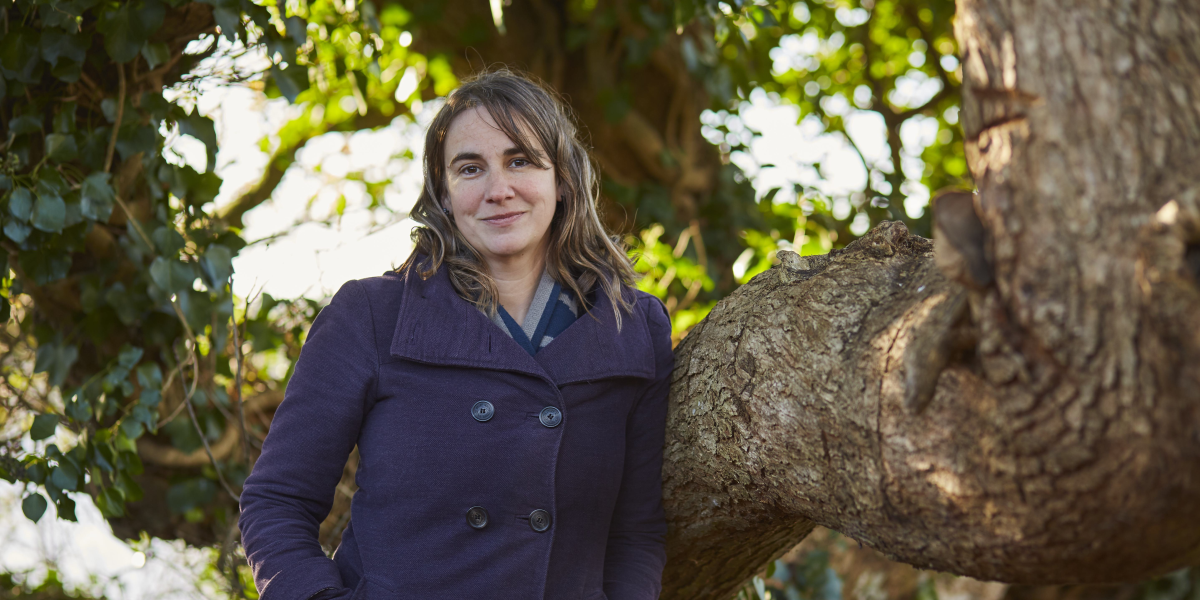
Newcastle alumna Pamela Buchan has been in love with the sea since she was a child. Now she's making waves for the protection and preservation of our marine environments.
We recently caught up with Pamela to find out more about her ‘Motion for the Ocean’ initiative and to look back on her time at Newcastle University.
I fell in love with Newcastle when I was 11. We had a couple of wonderful family holidays near Seahouses, and I knew I had to live in Newcastle near the Northumberland coast. It was serendipity that five years later I settled on marine biology and Newcastle University was a leading university for this subject.
'Fond memories' of my student days
I loved my time at Newcastle University, both the course (BSc Marine Biology, 2001) and living in Newcastle - so close to the sea. I remember the funny looks I received travelling back from the Dove Marine Lab, with buckets of sand and seawater, transporting sea life back to campus for lab work!
I have really fond memories of the field course in my second year, where we spent a week at the Millport field station on the Isle of Cumbrae. I did scuba diving based fieldwork and had a lovely moment with a greater pipefish circling round my arm.
A lifelong love of the sea
I’ve done lots of different things since I finished my undergraduate studies. First, I did postgraduate research into marine chronobiology, also at Newcastle University. I then moved into science communication, setting up Junior Café Scientifique (science discussion cafes) in North East secondary schools. Then I worked as a regional officer and volunteer manager with the British Science Association. This moved me back to the North West where I grew up, but my role covered the North of England, keeping me in touch with Newcastle.
Alongside that role, I completed an MSc in Coastal Zone Management at Ulster University, then secured ESRC 1+3 funding for an MRes and PhD in Marine Citizenship at Exeter University, which I completed in 2021.
I now do as many marine things as I can. I'm a Port Duty Holder, Vice Chair of my local Inshore Fisheries and Conservation Authority, and work as a consultant researching marine social science issues and advising on promoting marine citizenship. I’m fortunate that my research and consultancy work give me opportunities to work with world-leading organisations such as the WWF and the Ocean Conservation Trust.
What I enjoy most is working across disciplines, sectors, industries and environments. I love to learn and working across boundaries means that there are always new and complex challenges to figure out. By working across different settings and institutions, I experience how the natural and social worlds interact.
Making waves as a local Councillor
Whilst doing my PhD, I was elected to Plymouth City Council as a local Councillor. This got me engaged in a huge range of different things, and I’ve worked to put coastal communities and marine citizenship at the heart of the Plymouth Sound National Marine Park – the UK’s first national marine park.
It’s a privilege to get to be part of policy and decision-making, to help shape the direction of public authorities, and to work with all kinds of people in promoting ocean-connectedness and marine citizenship. I’m standing down from Council this year at the end of my term, to focus on my goal to transform the human-ocean relationship in a way that's sustainable and strengthens the connections between people and the ocean. Making progress on this goal is the most enjoyable and rewarding experience.
Why we should all care about the marine environment
The world ocean covers more than 70% of the Earth's surface - our planet should really be called Ocean. The world ocean regulates our climate, provides water and oxygen, and is an important source of food. These reasons should be enough for us to want to ensure that marine environments are sustainably managed.
But this isn’t really why protecting the sea is important to me personally. It’s important because I love the sea. I feel unhappy when I don’t see it often enough, and it makes me miserable not living near it. I’m a real marine person and my life has been completely shaped by my attachment to the sea. Being in nature, experiencing the sea, is good for our bodies, hearts and minds.
My PhD research showed that wanting to help improve how we use the sea comes from having a marine identity. ,That marine identity comes from needing the sea because of the positive feelings it can give us.
The best thing we can do to help the marine environment is to get to know it and learn to love it by spending time there. Then you might feel motivated to take action as a marine citizen.
How you can take action
Pamela has launched a campaign with the Ocean Conservation Trust and the LGA Coastal Special Interest Group encouraging people to contact their local Councillors and ask them to declare an urgent need for ocean recovery.
A model 'Ocean Recovery Declaration' - or Motion for the Ocean - aims to help local governments #ThinkOcean and identify ways they can make a difference.
They are calling for individuals to act as marine citizens and ask local Councillors to support and adopt the motion in more councils across the country. Find out more and get involved in the Motion for the Ocean project.
Do you have news to share with our alumni community?
If you're a part of our alumni community, get in touch and share your latest news and achievements so we can let your fellow Newcastle alumni know.
